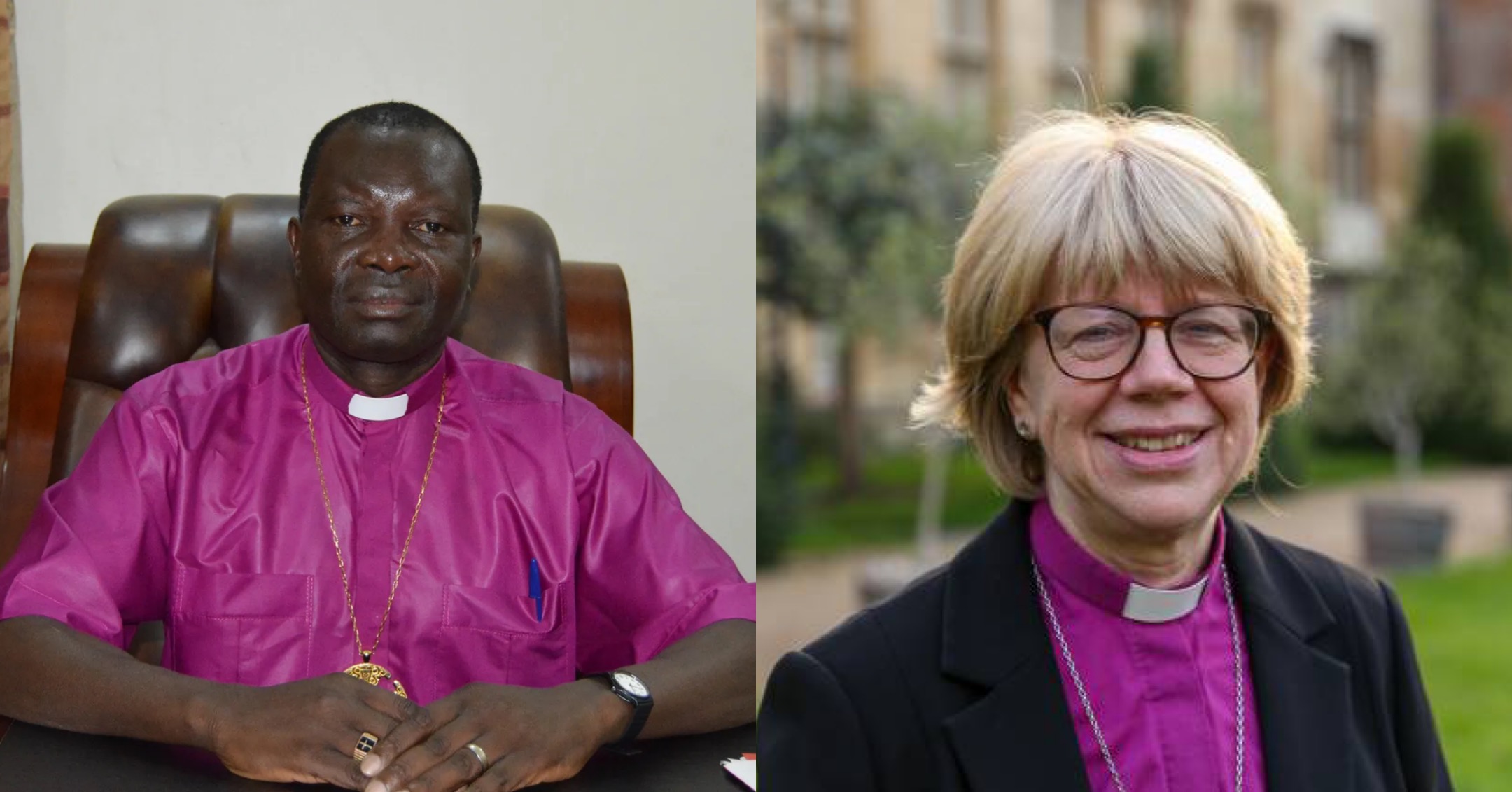The appointment of Dame Sarah Mullally as Archbishop of Canterbury has now drawn formal responses from both the Global South Fellowship of Anglican Churches (GSFA) and the Global Anglican Futures Conference (GAFCON). Between them, these two bodies represent the overwhelming majority of active Anglicans worldwide, churches that remain faithful to orthodox teaching and Scripture.
Both statements are sober, respectful, and prayerful in tone. However beneath the courtesies lie two distinct strategies for the future of world Anglicanism. Both recognise the same crisis. Both lament Canterbury’s continued theological drift. But their visions for what happens next now stand at a crossroads.
Shared Ground: Grief, Clarity, and Conviction
On the essentials, GSFA and GAFCON are united.
Both express sorrow rather than surprise. As GSFA’s statement puts it, “Grievous though this turn of events is, it is not unexpected.” GAFCON echoes this: “It is with sorrow that GAFCON receives the announcement… the Church of England has chosen a leader who will further divide an already split Communion.”
Both highlight the same fault lines, Mullally’s theology, her views on sexuality and abortion, and her perceived complicity in revisionist teaching. Both accuse Canterbury of departing from the “clear teaching of Scripture in matters of marriage and sexuality.”
Each cites her own words to underline the concern. For GSFA, it was her description of blessing same-sex relationships as “a moment of hope.” For GAFCON, it was her claim that some same-sex relationships “could be blessed.” Both movements interpret these comments as a rejection of the plain sense of Scripture and a failure to uphold her consecration vows.
On these grounds, both reaffirm their position that they no longer recognise the Archbishop of Canterbury as the ‘first among equals’ or as an effective Instrument of Communion. That consensus is now effectively settled across the orthodox Anglican world.
Different Tones, Different Visions
However while GSFA and GAFCON agree on the diagnosis, they diverge on the remedy.
GSFA’s response is structured, deliberate, and still committed to rebuilding within the Anglican Communion. Archbishop Justin Badi Arama speaks as a pastor more than a protester. While lamenting the appointment, he calls it “a missed opportunity to reunite and reform the Communion.” He offers not rupture, but remedy: a “framework of covenanted relationships, rooted in orthodox Anglican doctrine and mutual accountability.”
The vision is for renewal rather than replacement—a reordering of global Anglican life around shared conviction and mutual recognition. GSFA’s approach is ecclesial and covenantal. It seeks to preserve a Communion that is reformed and re-centred in the Global South but still recognisably Anglican.
For readers of this Anglicanism blog, this is significant. It shows that the GSFA is trying to sustain the bonds of Christian ministry across provinces, to keep space for Christian missions that flow from Scripture and not culture.
By contrast, GAFCON’s statement is more forceful, almost militant in tone. Where GSFA speaks of frameworks and fellowship, GAFCON speaks of failure and finality.
For GAFCON, Canterbury’s authority is already over. The statement declares bluntly that “the office can no longer function as a credible leader of Anglicans,” and that “the leadership of the Anglican Communion will pass to those who uphold the truth of the gospel.”
GAFCON positions itself not as a reforming movement, but as a replacement authority. It recalls its origins in the 2008 Jerusalem gathering that sought to “reset the Anglican Communion back onto its biblical foundations,” and now claims that “the reset… is uniquely in the hands of GAFCON.” The forthcoming G26 Bishops’ Assembly in Nigeria (March 2026) is framed as potentially the most significant Anglican meeting since 2008, language that borders on a declaration of realignment, if not outright schism.
Points of Divergence
There are several points where GSFA and GAFCON part company in tone or emphasis:
- On Women’s Ordination: GAFCON explicitly rejects the legitimacy of a female Archbishop, calling it “impossible for the Archbishop of Canterbury to serve as a focus of unity.” GSFA, while traditionally conservative, avoids this point entirely. Its concern is doctrinal rather than gender-based, signalling perhaps a desire not to alienate provinces that now ordain women but remain orthodox in theology.
- On Institutional Legitimacy: GSFA still uses the language of the Communion, offering a path to remain with integrity. GAFCON has moved beyond it, asserting that Canterbury “has relinquished its authority” and that GAFCON is now the authentic centre of Anglican leadership.
- On Tone and Intent: GSFA’s appeal is diplomatic, it still hopes for renewal “as a matter of urgency.” GAFCON’s tone is revolutionary: “The reset is now in our hands.”
In short, GSFA speaks the language of patience and covenant; GAFCON, the language of urgency and rupture.
Who Will Lead the Emerging Communion?
In truth, both movements now occupy the space once held by Canterbury. But they will not be able to do so indefinitely side by side.
GSFA’s strength lies in its ecclesial legitimacy, it already includes recognised Anglican provinces under the Primates of South Sudan, Egypt, Chile, and others. It has the theological depth, constitutional structure, and catholic instinct to preserve Anglican identity.
GAFCON’s strength lies in its energy and clarity. It speaks plainly and acts decisively. But its impatience could lead to a parallel communion, a new Anglicanism that risks cutting itself off from the global fellowship it seeks to renew. The planned G26 gathering in Nigeria may, if it formalises that separation, mark the first true schism in Anglican history since the Reformation.
If that happens, the Anglican Communion as we have known it will cease to exist. There will be two Communions, one liberal, centred on Canterbury; the other orthodox, centred in Africa. For those of us reflecting on faith in Africa, this is more than geopolitics. It is about whether African Christianity will model unity in truth or fracture under frustration.
A Word of Hope and a Warning
Let’s be honest that none of this feels good. It is not what any of us wanted. But perhaps it is the necessary consequence of decades of drift.
If GSFA can hold its course, providing a covenantal structure that allows provinces to stay with integrity, then Anglicanism still has a chance to remain global, missional, and recognisably one. If, however, GAFCON’s frustration boils into separation, we will have moved beyond crisis into schism.
I hope I’m wrong. I hope that March’s meeting in Nigeria does not formalise a break, but strengthens a shared resolve to keep the faith. But unless Canterbury repents, and quickly, the fabric of communion may already be torn beyond repair.
Still, the Gospel endures. The Spirit is not bound to Lambeth or Jerusalem. Across Africa and the Global South, the Anglican Church is alive, faithful, and fruitful. This religious blog exists to bear witness to that, rooted in Christian missions and Christian ministry that honour Scripture and serve the nations.
The question is not whether God is on our side, but whether, in the midst of all this, we will be found still on His.


Leave a Reply